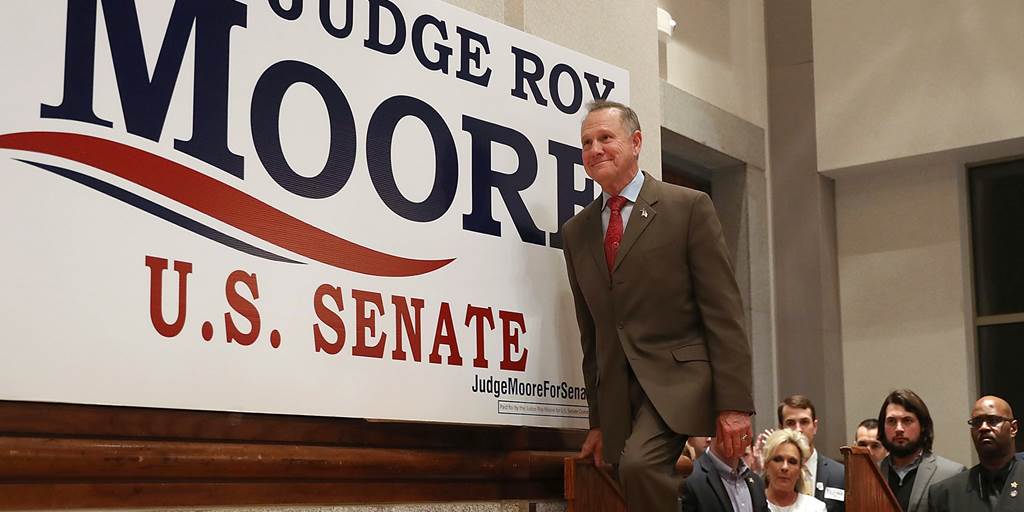Roy Moore, the polarizing Alabama Republican whose Senate campaign in 2017 was derailed by allegations of sexual misconduct, said today that he would seek a rematch next year.
His decision was an unsurprising act of overt defiance toward many of his party’s national leaders, including President Trump, who recently publicly warned him away from another Senate bid.
Republican officials fear that Moore, were he to win the party’s nomination in March, risks their prospects of defeating the Democratic incumbent, Senator Doug Jones, and recapturing a seat they long controlled with ease.
“The people of Alabama are not only angry, but they’re going to act on that anger,” Mr. Moore, a former chief justice of the State Supreme Court, said in Montgomery, the Alabama capital, as he announced his bid for the Senate seat. “The people of Alabama are tired of politicians saying one thing and doing another.”
Before he made his announcement, Moore detailed his grievances against Republican officials in Washington, and he predicted that the campaign arm of Senate Republicans would run “a smear campaign” against him.
Moore’s new campaign will test his standing among the Republican voters he cultivated — many of them white, evangelical conservatives from the state’s rural counties — as he became one of Alabama’s most divisive political figures of the last 50 years.
Moore’s efforts to hold public office beyond the judiciary have faltered, sometimes in Republican primaries, and many Republicans have proved allergic to his uncompromising views or, more recently, his reputation as an accused predator.
Still, in 2017, Moore came tantalizingly close to winning a Senate seat despite allegations that he had touched or made inappropriate sexual advances toward teenage girls when he was in his 30s.
Weeks after the accusations became public, Moore lost to Mr. Jones by 21,924 votes in a special election.
And Moore, who never conceded to Jones, the first Alabama Democrat elected to the Senate in a quarter of a century, spent month after month carping about the outcome, the influence of Washington’s most powerful Republicans and the misconduct accusations that transformed the race he had appeared poised to win.
In a state with a specialty in political spectacles — over about three years, a governor also resigned in disgrace and a House speaker was convicted on 12 felony ethics charges — Moore has reasons to think he can win this time, at least in the Republican primary in March.
He was repeatedly elected (and essentially removed as) chief justice of Alabama, and many of his most dedicated supporters maintain that he was wronged in 2017.
But Moore, 72, remains the scarce Alabama Republican who lost a statewide election to a Democrat in recent decades.
His brash, insular, unapologetic and proudly religious brand of politics made him a demagogue in the eyes of many of Alabama’s Democrats, and even of many of its Republicans.
And the accusations of sexual misconduct, which Moore has denied, are certain to be a campaign issue.
Democrats, though more confident in Jones’s prospects if Moore were the nominee, are not dismissing the former chief justice’s chances in a general election, particularly with the presidency also on the ballot in a conservative state.
“If you think about just the data from the past cycle, he’s a few thousand votes from being a United States senator,” said Mayor Walt Maddox of Tuscaloosa, the Democratic nominee for governor last year.
Moore’s rivals in the primary include Representative Bradley Byrne, whose 2010 campaign for governor fizzled out in a bruising primary (though he did garner more support than Moore in that race), and Tommy Tuberville, the former head football coach at Auburn University.
John Merrill, a Republican who was re-elected last year as the Alabama secretary of state, is expected to announce his decision about a Senate campaign as soon as this month.
